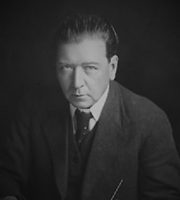About Christopher Brennan
Born in Sydney in 1870, the son of an Irish brewer, Brennan was educated by Jesuits as a scholarship boy and at the University of Sydney. He was expected to enter the priesthood, but he began to have religious doubts at nineteen. He obtained an MA with honours in philosophy at 22, and went on a fellowship to the University of Berlin. There he became engaged to his landlady's daughter and also fell in love, more lastingly, with the poetry of Mallarmé. On returning to Sydney he could only find work as a cataloguer in the public library. His German fiancée, who was awaited with expectations of mystical experience, delayed coming to Australia for four years because of his lack of income. Eventually Elisabeth Werth arrived and they married and settled in Newport, on Sydney's northern beaches. She has been remembered for her golden hair and blue eyes, and for singing songs of 'haunting sweetness' at the piano.Brennan's scholarship was such that he could have graced the chairs of philosophy, classics or modern languages in any institution, but it was more than a decade before he was appointed to a lectureship at the University of Sydney. This was because of his immoral poems and his already noticeable drunkenness. Ultimately he became an associate professor of German and comparative literature, although by this time he was so much an alcoholic that his notoriously erratic lectures, to which people flocked from outside the university, had to be scheduled for early in the day.
Brennan is essentially a poet of the 1890s; by 1902 the main body of his work had been written. The last poem selected here, 'I said this misery must end' is from 1908. He is a main gateway to modern Australian poetry; his influence reflected in poets as diverse as A. D. Hope and Roland Robinson. Despite his archaisms and portentous generalising, which are everywhere in his work, there is a real grandeur at times, as in his masterpiece 'The Wanderer', which is based on his restless trampings at night along the then isolated coastal heath beyond Newport, north of Sydney.
In his theory, Brennan was a disciple of Mallarmé, with whom he corresponded, and who admired his work. His work records his Symbolist quest for an absolute reality – at first through sexual love and, after disillusionment there, through turning inwards, away from the world, to a pure poetic state. 'The years that go to make me man' depicts this struggle as 'magian'. Brennan claimed that a poem is 'not a way of saying something but a mode of that something's being'. Claims such as this – that artists experience a super-reality – were later rejected in 'The Wanderer'. Chastened by the philosophy of F. C. S. Schiller and other pragmatists, he accepted that the quest, in itself, is all there is. All of Brennan's earlier search may be seen as an endeavour to create an intellectual substitute for the Catholicism of his youth: Symbolism can be seen as Catholicism theosophised, his Lilith as an inverted Maryology. Stylistically, too, Brennan's poetry is imbued with Catholicism, in its sonorous and theatrical quality. The bardic robes he drew on had always a touch of the purple.
Browse all poems and texts published on Christopher Brennan









